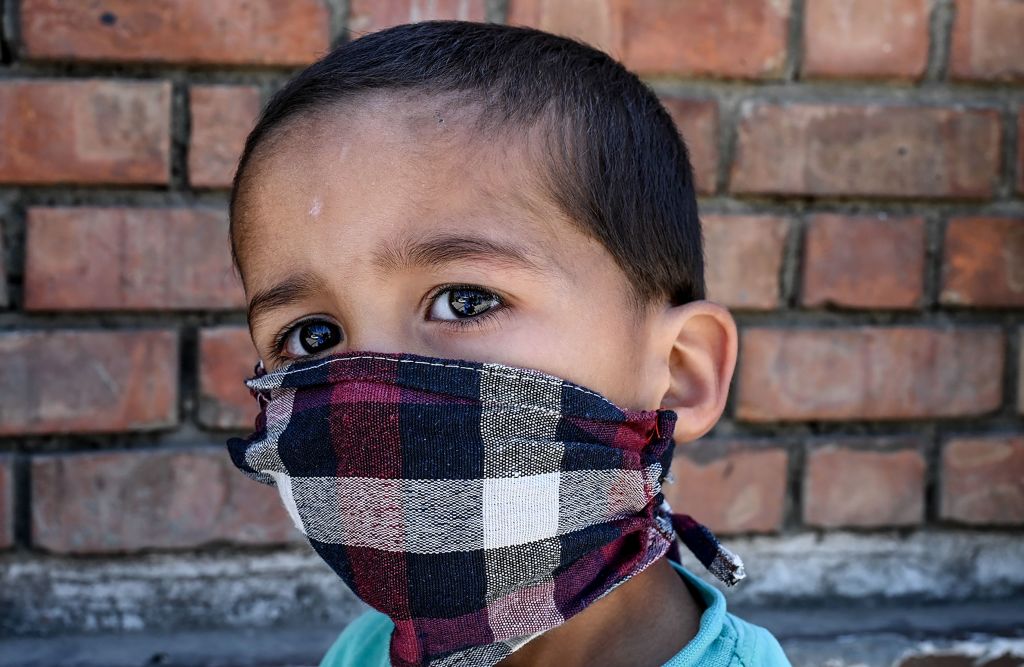COVID-19 is now believed to attack kids, kidneys, hearts, and nerves, not just lungs


A free daily email with the biggest news stories of the day – and the best features from TheWeek.com
You are now subscribed
Your newsletter sign-up was successful
New York Gov. Andrew Cuomo (D) said Sunday that three New York children have died and 73 have become gravely ill with an inflammatory disease tied to COVID-19. The illness, pediatric multisystem inflammatory syndrome, has symptoms similar to toxic shock or Kawasaki disease. Two of the children who died were of elementary school age, the third was an adolescent, and they were from three separate counties and had no known underlying health issues, said New York health commissioner Dr. Howard Zucker. Cases have been reported in several other states.
New York City health officials warned about the disease last week, but health providers were alerted on May 1 after hearing of reports from Britain, The New York Times reports. Symptoms have included prolonged high fever, racing hearts, rash, and severe abdominal pain. Dr. David Reich, president of Mount Sinai Hospital in Manhattan, said the five cases his hospital treated started with gastrointestinal issues and progressed to very low blood pressure, expanded blood pressure, and in some cases, heart failure. "We were all thinking this is a disease that kills old people, not kids," he told The Washington Post. Cuomo made a similar point.

It isn't just children struggling with arterial inflammation. In fact, for a virus originally believed to primarily destroy the lungs, COVID-19 also "attacks the heart, weakening its muscles and disrupting its critical rhythm," the Post reports. "It savages kidneys so badly some hospitals have run short of dialysis equipment. It crawls along the nervous system, destroying taste and smell and occasionally reaching the brain. It creates blood clots that can kill with sudden efficiency."
The Week
Escape your echo chamber. Get the facts behind the news, plus analysis from multiple perspectives.

Sign up for The Week's Free Newsletters
From our morning news briefing to a weekly Good News Newsletter, get the best of The Week delivered directly to your inbox.
From our morning news briefing to a weekly Good News Newsletter, get the best of The Week delivered directly to your inbox.
Many scientists now believe coronavirus wreaks havoc in the body through some combination of an attack on blood vessels, possibly the endothelial cells that line the blood vessels, and "cytokine storms," when the immune system goes haywire. "Our hypothesis is that COVID-19 begins as a respiratory virus and kills as a cardiovascular virus," Dr. Mandeep Mehra at Harvard Medical School tells the Post. Read more about the different ways COVID-19 attacks the body at The Washington Post.
A free daily email with the biggest news stories of the day – and the best features from TheWeek.com
Peter has worked as a news and culture writer and editor at The Week since the site's launch in 2008. He covers politics, world affairs, religion and cultural currents. His journalism career began as a copy editor at a financial newswire and has included editorial positions at The New York Times Magazine, Facts on File, and Oregon State University.
-
 How the FCC’s ‘equal time’ rule works
How the FCC’s ‘equal time’ rule worksIn the Spotlight The law is at the heart of the Colbert-CBS conflict
-
 What is the endgame in the DHS shutdown?
What is the endgame in the DHS shutdown?Today’s Big Question Democrats want to rein in ICE’s immigration crackdown
-
 ‘Poor time management isn’t just an inconvenience’
‘Poor time management isn’t just an inconvenience’Instant Opinion Opinion, comment and editorials of the day
-
 Trump HHS slashes advised child vaccinations
Trump HHS slashes advised child vaccinationsSpeed Read In a widely condemned move, the CDC will now recommend that children get vaccinated against 11 communicable diseases, not 17
-
 FDA OKs generic abortion pill, riling the right
FDA OKs generic abortion pill, riling the rightSpeed Read The drug in question is a generic version of mifepristone, used to carry out two-thirds of US abortions
-
 RFK Jr. vaccine panel advises restricting MMRV shot
RFK Jr. vaccine panel advises restricting MMRV shotSpeed Read The committee voted to restrict access to a childhood vaccine against chickenpox
-
 Texas declares end to measles outbreak
Texas declares end to measles outbreakSpeed Read The vaccine-preventable disease is still spreading in neighboring states, Mexico and Canada
-
 RFK Jr. shuts down mRNA vaccine funding at agency
RFK Jr. shuts down mRNA vaccine funding at agencySpeed Read The decision canceled or modified 22 projects, primarily for work on vaccines and therapeutics for respiratory viruses
-
 Measles cases surge to 33-year high
Measles cases surge to 33-year highSpeed Read The infection was declared eliminated from the US in 2000 but has seen a resurgence amid vaccine hesitancy
-
 Kennedy's vaccine panel signals skepticism, change
Kennedy's vaccine panel signals skepticism, changeSpeed Read RFK Jr.'s new vaccine advisory board intends to make changes to the decades-old US immunization system
-
 Kennedy ousts entire CDC vaccine advisory panel
Kennedy ousts entire CDC vaccine advisory panelspeed read Health Secretary RFK Jr. is a longtime anti-vaccine activist who has criticized the panel of experts
